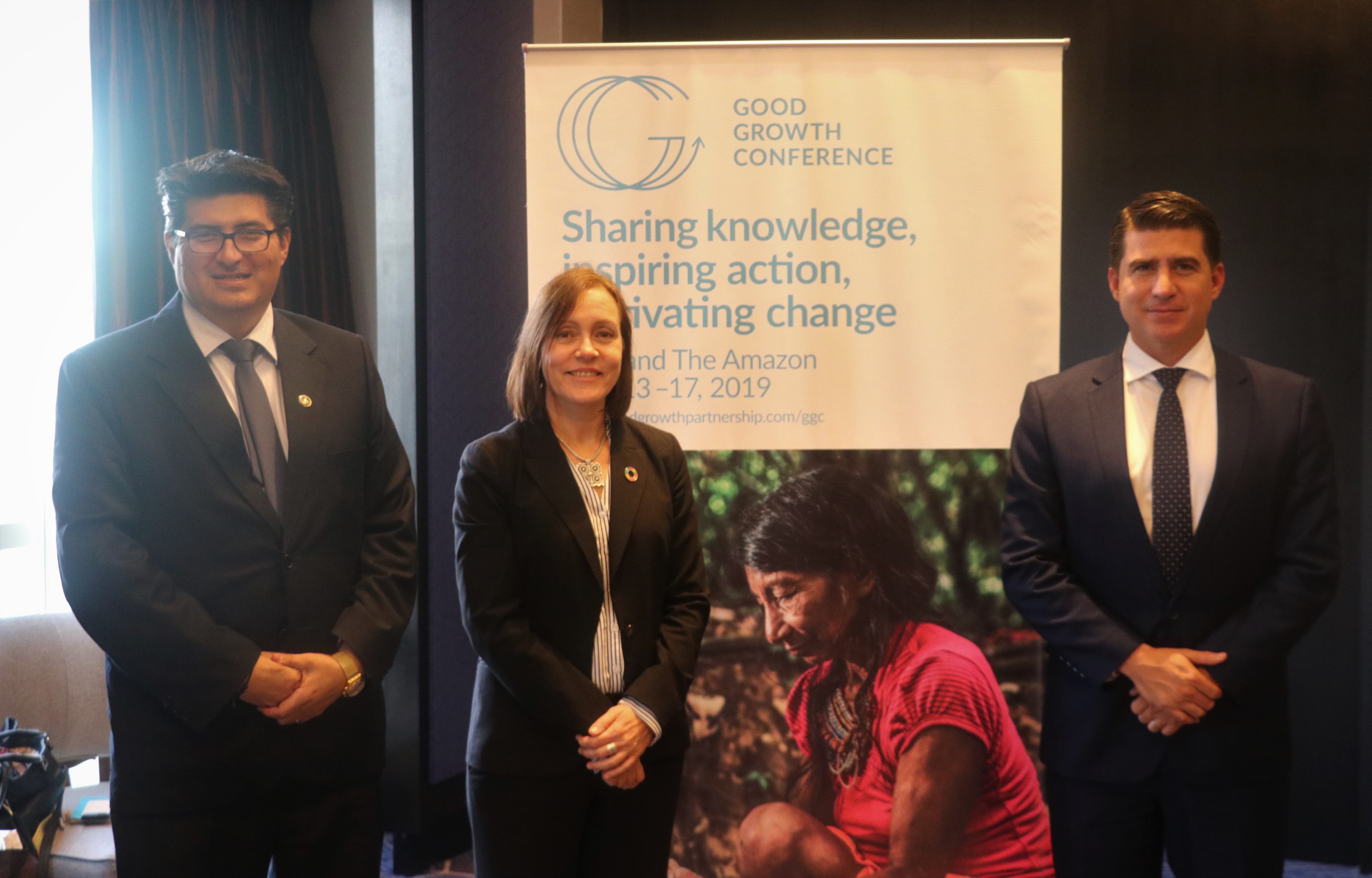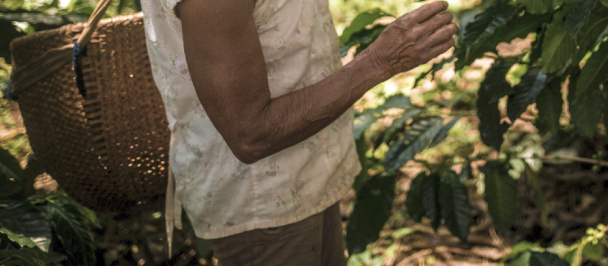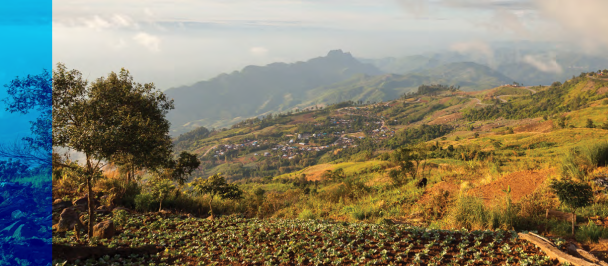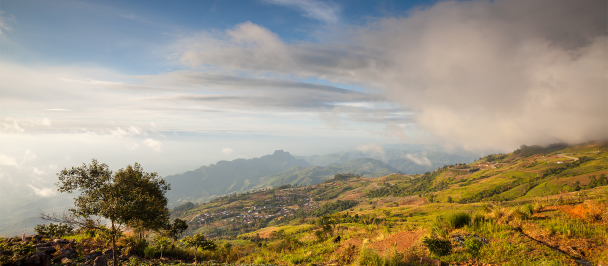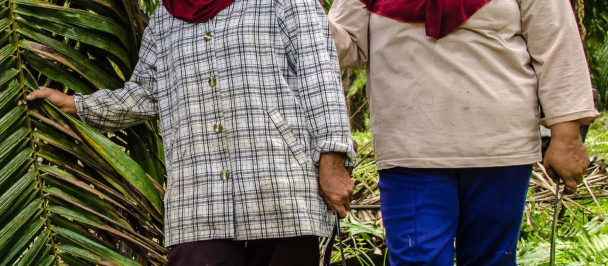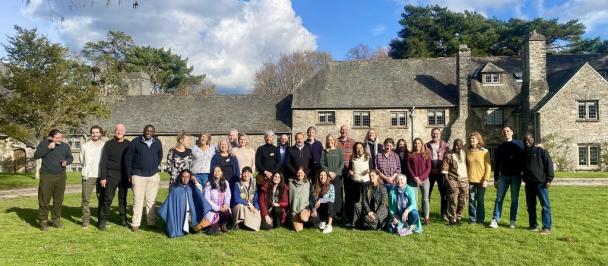Ecuador is positioning itself as an origin of choice for buyers looking for ‘Premium and Sustainable’ commodities. Although great progress has been made to make this a reality, expectations globally are rising, with many companies moving beyond ‘do no harm’ to wanting demonstrable positive, regenerative impact. Ecuador needs to keep its position as a leader in this field, which will require the government to work together with private sector, producer groups and civil society meet these evolving requirements.
Quito, November 2019. This month saw the launch of Ecuador's new 'Premium & Sustainable' campaign, aimed at showcasing the country as a global leader in production of high quality and sustainable commodities. UNDP’s partner the Ministry of Agriculture has spearheaded the development of this concept, supported also by the Ministries of Environment and Commerce.
The seed for the forum was sewn during the Good Growth Conference in Peru, attended by Ecuador’s Minister for Agriculture Xavier Lazo, who saw first hand the benefits of bringing together a range of stakeholders to address the sustainability challenges in commodity production. Following six intense months of work by the UNDP team in Ecuador and with the support of UNDP's Green Commodities Programme, the launch event in Quito brought together nearly 300 women and men, including producer group and civil society representatives, national and international private sector, donors, diplomats, standards agencies and commodity sector representatives such as the International Coffee Organisation and International Cocoa Organisation.
Ecuador's Minister of Agriculture Xavier Lazo and Minister of Environment Marcelo Mata Guerrero, and UNDP Ecuador Resident Representative Matilde Mordt, at the Good Growth Conference.
The UNDP Green Commodities Programme's Senior Markets Advisor Christina Archer shared the platform with Earth Innovation Institute and the European Forest Institute to deliver a keynote speech highlighting the emerging global trends in sustainability for commodity production and consumption.
The stark facts on the state of the world are well known: the upward trend in population growth and resulting increased demand for food are key drivers for the expansion of commodity production, leading in many cases to unsustainable and harmful practices, including deforestation and degradation of precious ecosystems. Commodities such as soy and beef account for nearly 80% of tropical deforestation, and in most cases are not supporting a viable resilient livelihood for farmers. However we do see opportunities for responsible and sustainable agriculture to contribute to food security and poverty reduction, and become a driver for development.
Ecuador is known the world over for its production of bananas and high end cocoa, and it also has a growing palm and coffee sector. It has made great progress in tackling deforestation, and taking the lead on sector initiatives such as piloting the jurisdictional certification for palm. But as transparency and traceability in supply chains improves, so are global buyers demanding more and more demonstration of sustainability in all its forms: environmental, social and economic. Many companies are already stepping up and making additional commitments, for example leading trader Olam recently announced it will pay all its cocoa farmers a living income by 2025. Retailers in Netherlands have joined forces to commit to only buying bananas from sources that demonstrably pay a living wage to workers. Governments in importing countries are also using legislation, for example the Belgian government launched the ‘Beyond Chocolate’ initiative that will require all cocoa imported into the country by 2030 (a significant proportion of cocoa beans are imported and processed by Belgium) has to demonstrate that farmers have received a living income and there is no more deforestation caused by the cultivation.
The recognition of the complexity of the challenges surrounding commodity production is also leading to increased calls for collaboration and partnership, which is of course a cornerstone SDG, and a focus of work for UNDP and GCP's Multi-Stakeholder Collaboration for Systemic Change approach. The challenge is how to facilitate effective collaboration between actors with very divergent interests and objectives, in order to bring about real significant change.
GCP has committed to working with the UNDP country team to support the Government of Ecuador in identifying and meeting these evolving sustainability challenges to develop a system that can produce commodities in a way that not only meets global expectations, but also safeguards and improves the country’s precious resources for generations to come. The launch last week was the first step on a journey, and during 2020 GCP will continue to work with the government and other actors to identify progressive private sector partners and other changemakers in order to co-create parterships that can jointly tackle the challenges identified. A high level Summit in 2020 will bring together these organisations, to cement the partnerships and develop new models of of production and purchase.
Photo: ProAmazonía
Photo: ProAmazonía
Photo: ProAmazonía

 Locations
Locations